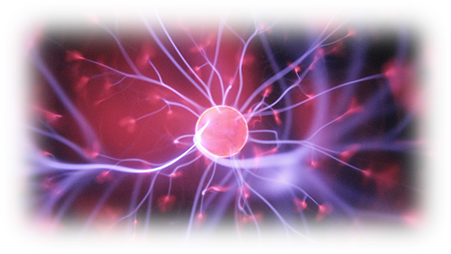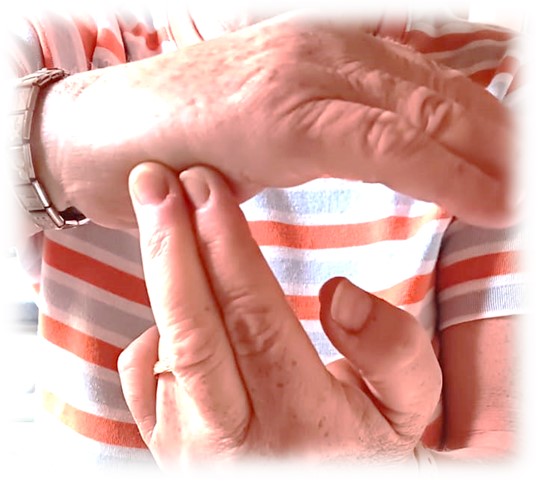LifeChanges therapy harnesses and integrates the power of the well proven disciplines of Hypnotherapy, Neuro Linguistic Programming (NLP) and Emotional Freedom Technique (EFT) in an innovative way. These are different but very complementary disciplines, each with their own particular techniques. A brief explanation of each discipline is provided below. Please contact me if you would like more detailed explanations or would like to discuss further.
Specific techniques are selected by the therapist to match your needs and desired outcomes, to bring about positive change. The therapist uses the selected techniques to activate your inner resources to help you achieve your outcomes.
|

Hypnotherapy is the application of hypnosis by the therapist to bring about the necessary change in the client to eliminate their problems. The purpose of hypnosis is to access and activate the client's inner resources to bring about the desired outcomes.
Hypnosis can be described as a 'different' or altered state of consciousness. There is nothing strange or mystical about the hypnotic state. It can occur naturally many times during the day to everyone. For example, by day-dreaming you simply enter a trance state, which is akin to the hypnotic state. Whenever you become totally absorbed in an interesting book or in a film, for example, you may not recall any conscious conversation with another person. That is also similar to hypnotic trance. You may even adopt the role of your hero in the book or film, feeling the motions portrayed by the plot.
Hypnosis is a perfectly relaxed state that allows the therapist and the client to interact in harmony to access and communicate with the subconscious mind to bring about the client's desired outcomes. Hypnosis induces a state of deep relaxation in the mind and body of the client, almost like being awake and asleep at the same time. This state of deep relaxation or hypnotic trance quietens the conscious mind to make communication with the subconscious mind possible. There are several ways to induce hypnosis but one of the most commonly used is to guide the client into a relaxed state using guided imagery and relaxing language. Sometimes soothing music is used to help the client further relax and focus.
After you go into trance, the therapist gives suggestions that help to alter your subconscious thoughts and patterns of behaviour and encourage you to make the changes you desire. Some of the suggestions might provide triggers or anchors that will be activated by a cue to support your desired outcome or goal. For example, if you want to stop smoking, by putting a cigarette in your mouth, it will trigger a foul taste in your mouth. Or, if you have a fear of flying, whenever you fasten your seat, you will feel relaxed, confident and comfortable.
At the end of the session you will be gently brought back to a full conscious state.
Contrary to what stage hypnotists portray, you will not do anything that you find unacceptable or unpalatable. People who appear to be under the 'control' of the stage hypnotist could be described as 'seeking their 15 minutes of fame'. Usually these are the same people who will become exhibitionists after a few alcoholic drinks.
You are always in control and will not reveal or share anything against your will. If unacceptable or unpalatable suggestions are made you can simply come out of trance to free yourself from the situation.
However, it is important to understand that you must want to change for hypnosis (or many of the other methods) to help. For example, if you want to lose weight only because your partner wants you to, hypnosis may not have the same success as wanting it for yourself.
Finally, during hypnotherapy, if you feel uncomfortable for any reason and want to end the session, you will be perfectly capable of doing so and return to full consciousness.

NLP was developed by Richard Bandler and John Grinder in the early 70's. It is often described as 'the art and science of excellence', derived from studying exceptional people who acheived outstanding results. The results of these studies plus on-going research and development has resulted in a series of models of excellence in the fields of therapy, business, communication and education. However, don't be put off by the rather cumbersome name.
These models can be adapted and internalised by everyone to improve their personal and professional effectiveness.
The underlying science is that by adapting and learning these models we change our neurolgy, our language patterns, and the mental programmes that run us.
'Neuro' refers to our nervous system or the mental pathways our five senses take, which allow us to see, hear, feel, taste and smell. We experience the world through these senses, physically and mentally, establishing the close bond between mind and body. When we change our neurology we change our experience of life including our behaviours and emotions. Think of biting into a juicy lemon. What do you see, feel and taste? Now think of biting into your favourite chocolate. What do your senses experience now?
'Linguistic' refers to how we use language to express ourselves, as well as how our internal language" of movement and gestures reveals our states, thinking styles and more. Words and expressions can mean different things to different people resulting in different emotions and behaviours to their reactions. For example the word 'snow' might generate a feeling of 'winter depression' in one person, while in another it might mean fun and excitement from skiing.
'Programming' is taken from computer programming refering to re-programming the mind or changing the 'software' that governs our thoughts, feelings and actions. We can choose which programmes we want to run thereby affecting how we think feel and act. Therefore we can put this to good use to bring about immediate positive changes in our performance, for example.
To bring about change in our lives, we move from a current state to a future (desired state). The current state will have specific behaviours, thoughts and feelings associated with it. The future state will have a different set of behaviours, thoughts and feelings. To make the transition from the current state to the desired state we must be motivated. That is, we must convince ourselves that the desired state is worth pursuing and achievable. Once we make the decision we need resources to make the journey. NLP provides powerful tools and process for creating or harnessing internal resources to make that journey possible. For example, if we want to move from a state of stress and anxiety to one of peace and calm, we may need to create or harness resources of being in control and relaxation.

EFT has its roots going back 5000 years when the subtle energies of the body were first discovered and their meridians mapped by the Chinese, giving rise to Eastern health therapies. Acupuncture, like EFT owes its existence to the discovery of these subtle energies.
EFT has evolved from Applied Kinesiology and Thought Field Therapy. Thanks to its founder, Gary Craig, who simplied the procedures of its antecedants, has made this profound technique available to everyone. Even although its name implies emotional healing, it has been used with incredible success in physical healing, too. This has a strong resonance with the mind/body connection referred to in the previous section on NLP. Physical illness has a strong impact on the body's emotional state, and by addressing these emotions, we can bring about change to the physical condition.
According to Gary, 'EFT is based on the discovery that imbalances in the body's energy system have profound effects on one's personal psychology. Correcting these imbalances by tapping on certain body locations, often leads to rapid remedies'. This led Gary to formulate the Discovery Statement: 'The cause of all negative emotions is a disruption to the body's energy system'.
The elegant simplicity of EFT is that we eliminate the painful emotions simply by tapping near the end points of specific energy meridians to restore the balance in the body's energy system. Note that this does not say that you have to re-live the painful distressing memory to bring about healing.
Some pyschotherapy approaches assume that distressing memories are caused by negative emotions and the client may have to re-live those painful emotional experiences during therapy. However, according to the Discovery Statement, the process of re-experiencing a distressing memory will further disrupt the energy system and thus further aggravate the condition. By using EFT, the client can avoid this.
Typically, conventional psychotherapy can take several sessions to bring about meaningful healing or change, whereas using EFT, it can as little as one session, and even minutes!
EFT like most therapies has a standard set of procedures. It is incumbent on the therapist to be flexible and responsive to the client's needs in applying them.
Sometimes clients will subconsciously sabotage treatments by a process known as psychological reversal, due to self defeating negative thinking. (In hypnotherapy this is known as secondary gain). Even in these situations, EFT has a simple procedure for correcting it that takes only a few seconds.
Once learned by the clients, they can use EFT by themselves on a wide range of physical and emotional conditions.